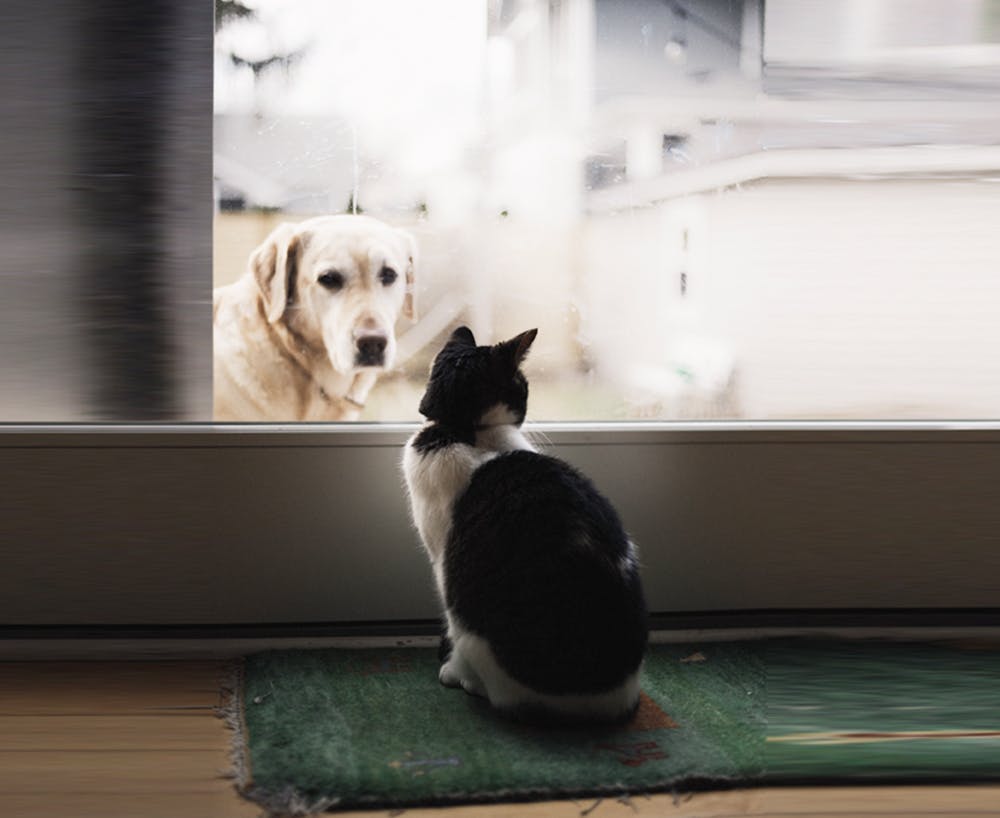
It’s one of the hardest things to see a loved one battle cancer, and that includes our pets. Did you know that cancer in cats and dogs are sadly quite common? Dogs get cancer at about the same rate as humans, while the risk is a little lower for cats. Understanding the risks can help us better protect our beloved furry friends by seeking timely treatment.
How likely is a dog/cat likely to get cancer?
Abnormal growth of cells and tissues is called neoplasia, or more commonly known as tumors. They’re not all harmful. Benign tumors do not spread to other parts of the body and tend to be relatively harmless. Only growths that are malignant are cancers. According to the Veterinary Cancer Society, around 1 in 4 dogs will develop cancer during their lifetimes, while the chances are about 50% for canine over 10 years old. Cancer is also a leading cause of death for older cats.
Just like for humans, it can be difficult to pinpoint exactly what causes cancer. For certain dog breeds like golden retrievers and Scottish terriers, their genetics appear to make them more susceptible to cancer. Some cancers can be caused by viruses, such as the feline leukemia virus in cats. Other environmental factors including excessive sunlight exposure, hormones, and toxins in our environment (second-hand smoke, household chemicals) have also been associated with cancer in our four-legged friends.
Types of cancer common in pets
Some of the most common types of cancer in cats and dogs include:
Lymphoma – This is a type of blood cancer that affect a type of white blood cells found in the body’s lymphatic system, which is crucial for removing toxins and fighting diseases. In cats, lymphoma can be caused by the feline leukemia virus, but fortunately there is a vaccine for it.
Mast cell tumors – This cancer often show in the form of lump or bump on the skin, but it can also occur anywhere in the body. It affects a type of blood cell that plays a role in allergies and inflammation.
Mammary (breast) cancer – This is the most common cancer in dogs, according to the Veterinary Cancer Society. Spaying female pups before they go into heat can drastically reduce the risk.
Osteosarcoma – This is a very painful and aggressive type of bone cancer that happens to both cats and dogs, especially in larger breeds. Unexplained lameness or sudden bone fracture can indicate osteosarcoma.
How is cancer treated in pets?
Most of the treatment options for humans are also available to pets. The most common ones are surgery, chemotherapy, and radiation therapy. Your vet will help come up with a plan using one or a combination of treatments that is most suitable for your pet. You can also choose to see a vet oncologist, a doctor specializing in treatment of cancer.
Some owners of older pets may not want to put their beloved companion under invasive treatments. That’s completely understandable. Have a discussion with your vet about what is best for your furry one and how to reduce their suffering in their sunset years.
How can insurance help?
According to OneDegree’s estimate, medical expenses to treat cancer add up to approximately HKD 31,500 each year. This may vary depending on the type and stage of cancer, and your pet’s health condition. Having insurance coverage can greatly reduce the financial burden so you can devote your attention to your pet during this tough journey.
Pawfect Care is the only pet insurance in town that offers a cancer cash benefit. If your pet is covered under our plans, we will give you a HKD 10,000 cash lump sum if your furry one is unfortunately diagnosed with cancer for the first time in his or her life. You’re free to spend this amount on whatever is best for your pet, including chemo, herbal medicine, rehabilitation, or special diets.
Check out our pet Insurance to get an overview of the Pawfect Care’s coverage.
Sources:
https://www.avma.org/resources/pet-owners/petcare/cancer-pets
https://www.oncolink.org/cancers/vet/10-steps-to-take-when-your-pet-has-cancer
https://www.merckvetmanual.com/special-pet-topics/cancer-and-tumors/causes-of-cancer
https://www.thedrakecenter.com/services/pets/blog/cancer-and-pets-whats-cause
https://www.vet.upenn.edu/docs/default-source/ryan/oncology-handouts/final-canine-mct.pdf?sfvrsn=4
https://www.aaha.org/your-pet/pet-owner-education/ask-aaha/canine-cancer/
